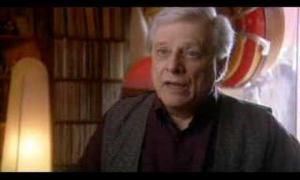The Speechwriter’s Life: Eleanor Foa Dienstag
January 02, 2017
An interview with the first woman speechwriter on Wall Street.
The Speechwriter’s Life – Eleanor Foa Dienstag
In 1978, American Express hired Eleanor Foa Dienstag to work as a speechwriter in its New York City headquarters. Female speechwriters were not common in those days – indeed, recalled Dienstag, during a recent phone conversation with Vital Speeches: “I believe I might have been the first female speechwriter on Wall Street – I did not meet another one at that time.” Five years later, she took the plunge as a freelance corporate writer and speechwriter, and has thrived ever since.
Based on her nearly 40 years in the business, Dienstag shared the following five insights in succeeding as a speechwriter:
Speechwriters need to think broadly, like the leaders they write for.
“As a speechwriter, you need to understand the big picture. The CEOs you are writing for have to think broadly, and that’s what you need to do as a speechwriter. No one taught me to take this top-down view. I just brought it to the job. I thought it was very helpful and important in my success,” Dienstag said.
Perhaps it runs in the family – her father “was a classically-trained economist, who read very broadly.” She brought that perspective to her writing and thinking. As a history major at Smith College, she enjoyed thematic essay writing, not simply “memorizing dates.”
“Towards the end of my time at American Express,” she added, “we had so much work that we looked for freelancers.” Dienstag interviewed a number of academics who, on paper, had the expertise to be speechwriters, but they “thought so narrowly” that she realized they lacked the necessary perspective.
A tape recorder is a speechwriter’s secret weapon.
“I would say that, about 90% of the time, I am able to meet with and interview the people I’m writing for, which is always preferable to working through a third party. I use a tape recorder during my interviews in order to capture the speaker’s language and style. This is especially valuable when dealing with a specialized subject – whether it’s in the field of health, finance, technology, whatever – which often has a lingo all its own. It’s a laborious process to record a conversation and then transcribe it, but it has worked exceedingly well for me.”
Speechwriters who are skilled interviewers help the person they are writing for open up.
“Similarly, the best people to write for are those who bring their ideas and personalities to the process. It’s a joint venture. For example, I very much enjoyed working with Lou Gerstner at American Express, RJR Nabisco and IBM. Whether it was a personal metaphor or simile, like ‘planting a garden,’ Lou would always come up with very personal analogies that no speechwriter could invent, which made his concepts sound authentic and persuasive.”
Empathy is essential to the craft of speechwriting.
“I really enjoy being an advocate for the person I’m writing for. When you’ve helped someone convey his or her ideas or deepest feelings through a speech and done it well, it’s very satisfying.”
It’s harder to write a short speech than a long one, but sometimes the challenge really pays off.
“One assignment that sticks in my mind involved writing brief remarks for a son to deliver while introducing his father at a major charitable event. Obviously, the two men were not very close, which certainly was a tricky situation. I later heard that the speech was so successful that the father had tears in his eyes. It helped the two to reunite.”
Speechwriting may provide you with the opportunity to influence policy.
“One of my first speeches for American Express CEO Jim Robinson, was to the Girl Scouts of America. I dipped into old AmEx files and started the speech with humorously outdated quotes from the bad old days when women had to dress and act in a subservient way. Jim loved the speech, as did the audience. The speech provided him – and the company – with a platform to express egalitarian and non-sexist values. So in a small way, I felt I nudged things forward, and made explicit what was implicit – that women were welcomed in the workplace. I also found opportunities – before most executives were aware of the tsunami awaiting them — to write about how the digital revolution was transforming the world of financial and consumer services. Being ahead of the curve helps,” Dienstag said.
Note: In addition to being an award winning speechwriter, Dienstag is also a journalist, author and photojournalist. Her websites are: www.eleanorfoa.com and www.eleanorfoaphotography.com


